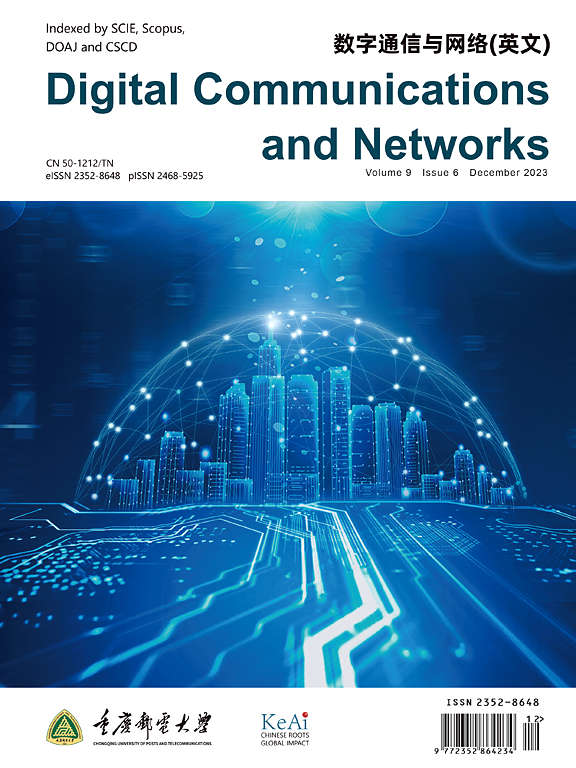CMBA-FL: Communication-mitigated and blockchain-assisted federated learning for traffic flow predictions
IF 7.5
2区 计算机科学
Q1 TELECOMMUNICATIONS
引用次数: 0
Abstract
As an effective strategy to address urban traffic congestion, traffic flow prediction has gained attention from Federated-Learning (FL) researchers due FL's ability to preserving data privacy. However, existing methods face challenges: some are too simplistic to capture complex traffic patterns effectively, and others are overly complex, leading to excessive communication overhead between cloud and edge devices. Moreover, the problem of single point failure limits their robustness and reliability in real-world applications. To tackle these challenges, this paper proposes a new method, CMBA-FL, a Communication-Mitigated and Blockchain-Assisted Federated Learning model. First, CMBA-FL improves the client model's ability to capture temporal traffic patterns by employing the Encoder-Decoder framework for each edge device. Second, to reduce the communication overhead during federated learning, we introduce a verification method based on parameter update consistency, avoiding unnecessary parameter updates. Third, to mitigate the risk of a single point of failure, we integrate consensus mechanisms from blockchain technology. To validate the effectiveness of CMBA-FL, we assess its performance on two widely used traffic datasets. Our experimental results show that CMBA-FL reduces prediction error by 11.46%, significantly lowers communication overhead, and improves security.
CMBA-FL:用于交通流量预测的通信缓解和区块链辅助联邦学习
交通流预测作为解决城市交通拥堵的一种有效策略,由于其保护数据隐私的能力而受到联邦学习(FL)研究人员的关注。然而,现有的方法面临着挑战:一些方法过于简单,无法有效地捕获复杂的流量模式,而另一些方法过于复杂,导致云和边缘设备之间的通信开销过大。此外,单点故障问题限制了它们在实际应用中的鲁棒性和可靠性。为了应对这些挑战,本文提出了一种新的方法,CMBA-FL,一种通信缓解和区块链辅助的联邦学习模型。首先,cba - fl通过为每个边缘设备采用编码器-解码器框架,提高了客户端模型捕获临时流量模式的能力。其次,为了减少联邦学习过程中的通信开销,引入了一种基于参数更新一致性的验证方法,避免了不必要的参数更新。第三,为了降低单点故障的风险,我们整合了区块链技术的共识机制。为了验证CMBA-FL的有效性,我们在两个广泛使用的交通数据集上评估了它的性能。实验结果表明,CMBA-FL预测误差降低了11.46%,显著降低了通信开销,提高了安全性。
本文章由计算机程序翻译,如有差异,请以英文原文为准。
求助全文
约1分钟内获得全文
求助全文
来源期刊

Digital Communications and Networks
Computer Science-Hardware and Architecture
CiteScore
12.80
自引率
5.10%
发文量
915
审稿时长
30 weeks
期刊介绍:
Digital Communications and Networks is a prestigious journal that emphasizes on communication systems and networks. We publish only top-notch original articles and authoritative reviews, which undergo rigorous peer-review. We are proud to announce that all our articles are fully Open Access and can be accessed on ScienceDirect. Our journal is recognized and indexed by eminent databases such as the Science Citation Index Expanded (SCIE) and Scopus.
In addition to regular articles, we may also consider exceptional conference papers that have been significantly expanded. Furthermore, we periodically release special issues that focus on specific aspects of the field.
In conclusion, Digital Communications and Networks is a leading journal that guarantees exceptional quality and accessibility for researchers and scholars in the field of communication systems and networks.
 求助内容:
求助内容: 应助结果提醒方式:
应助结果提醒方式:


